2020: The year a pandemic collided with global refugee crises
Refugees, activists, aid groups and photojournalists reflect on a year that has been unkind to refugees, and not just because of the coronavirus crisis.
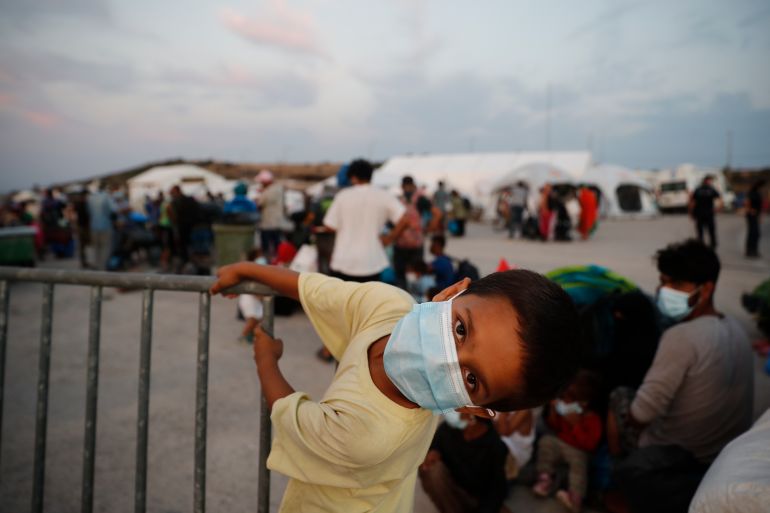
When fears about the coronavirus pandemic started to grip the world, aid workers and activists worried for refugees. Crammed into tight spaces with little access to medical care and basic sanitation, how would they be able to create distance between each another, wash their hands regularly, get face masks?
The conversation soon turned. When, it was assumed, rather than if, the virus reached refugee camps, how would they cope? And would governments isolate them further from society? It was a disaster waiting to happen.
Keep reading
list of 4 itemsEU policy ‘worsening’ mental health for refugees on Greek islands
What we got wrong about COVID-19 and refugees
Rohingya refugees are being displaced, again
Fortunately, reports of refugees dying of coronavirus have been rare and the pandemic has not ripped through dense camps to the extent that was anticipated.
But 2020 has not been kind to people trying to flee war and persecution.
Across the world, more than 3,200 people have died while making perilous journeys, most of them drowning. Fresh refugee crises are brewing, from the Spanish Canary Islands to Sudan. And while many may have escaped the physical threats of coronavirus, the pandemic has been used as a political weapon against them.
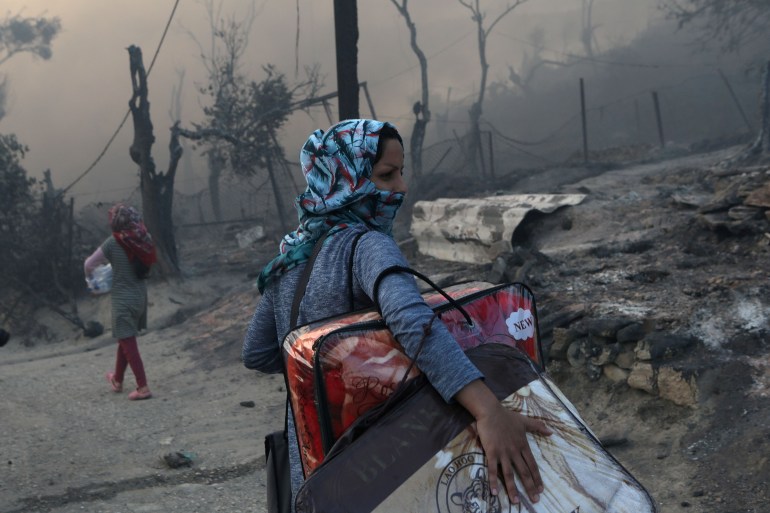
Refugees this year have been stranded at sea in the Bay of Bengal and the Mediterranean as governments refused them, sometimes for months, risking hunger, dehydration and ultimately, death.
In September, a huge fire gutted Moria, the camp on the Greek island of Lesbos, home to 13,000 people and known for its notoriously bad conditions. Dead rats were found in the ashes.
A month later, 140 refugees perished off the Senegalese coast, deaths that failed to make headlines with the world’s attention still firmly on the pandemic.
Al Jazeera asked refugees, grassroots groups, international human rights and organisations, and photojournalists to reflect on the past year:
‘Would our fate have been different if we were to face the world as refugees today?’
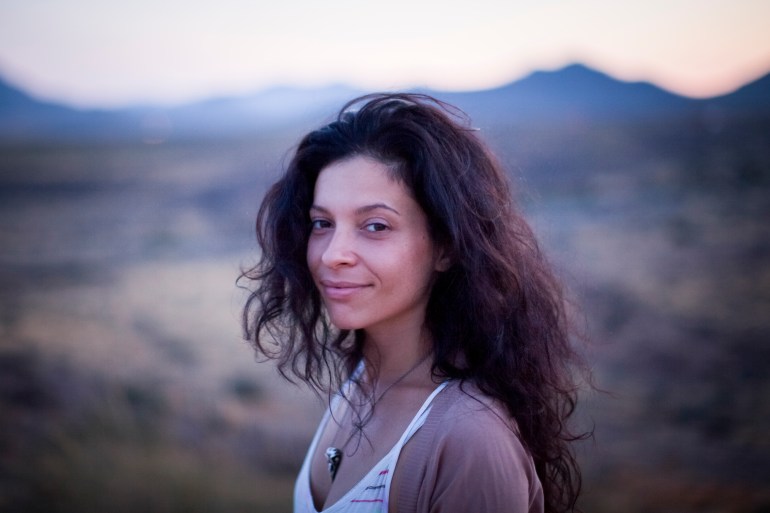
Diana Zeyneb Alhindawi, photographer and former refugee:
Earlier this month, I returned to the Democratic Republic of the Congo, which I’ve come to consider a second home. I am writing from Ituri, a province with a particularly grim history of violence. The conflict here reignited in March; there are currently 1.6 million displaced within Ituri alone. Chances are, you’ve heard little or nothing about it.
Two days ago, I met Leonia Djakayi Imbussi, 90, in a crowded informal settlement in a church yard. Leonia had to flee deadly conflict repeatedly throughout her life – in 2000, 2018 and again 2020. Many members of her family were killed over the years. I thought about the intricate web of local, regional and international politics that had repeatedly landed her destitute. And I couldn’t help but think of my own country’s response – throughout his four-year term, President Donald Trump instated policies that have been hostile towards refugees and made it increasingly difficult to gain asylum in the US.
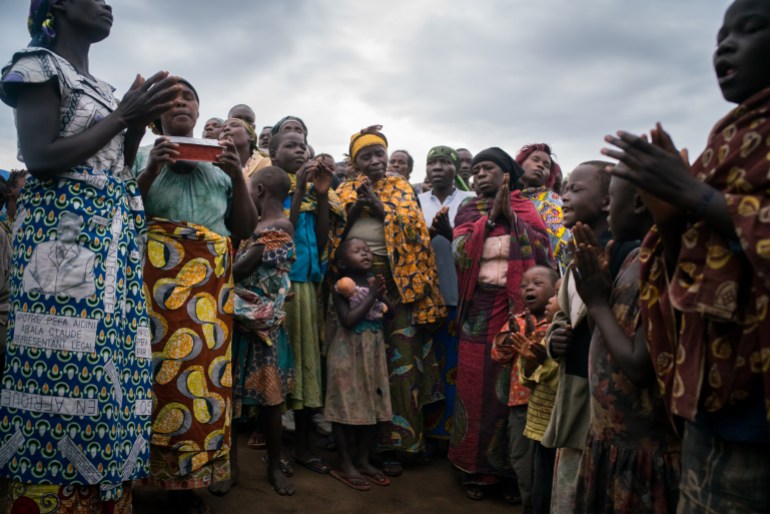
This year, the Trump administration, as well as other governments around the world, cited COVID concerns to justify hardline migration policies. It was particularly jarring because my family and I were once refugees ourselves, and now my father, a surgeon, works to save lives in a COVID ICU ward.
In 1987, we fled then-communist Romania, my father also unable to return to his homeland of Iraq, where his family had been persecuted under Saddam Hussein’s regime. In all senses, we are a prime example of “the American dream.” Would our fate have been different if we were to face the world as refugees today?
‘By far the worst year of my life’
Aziz Barbari, 23, Afghan refugee in Greece:
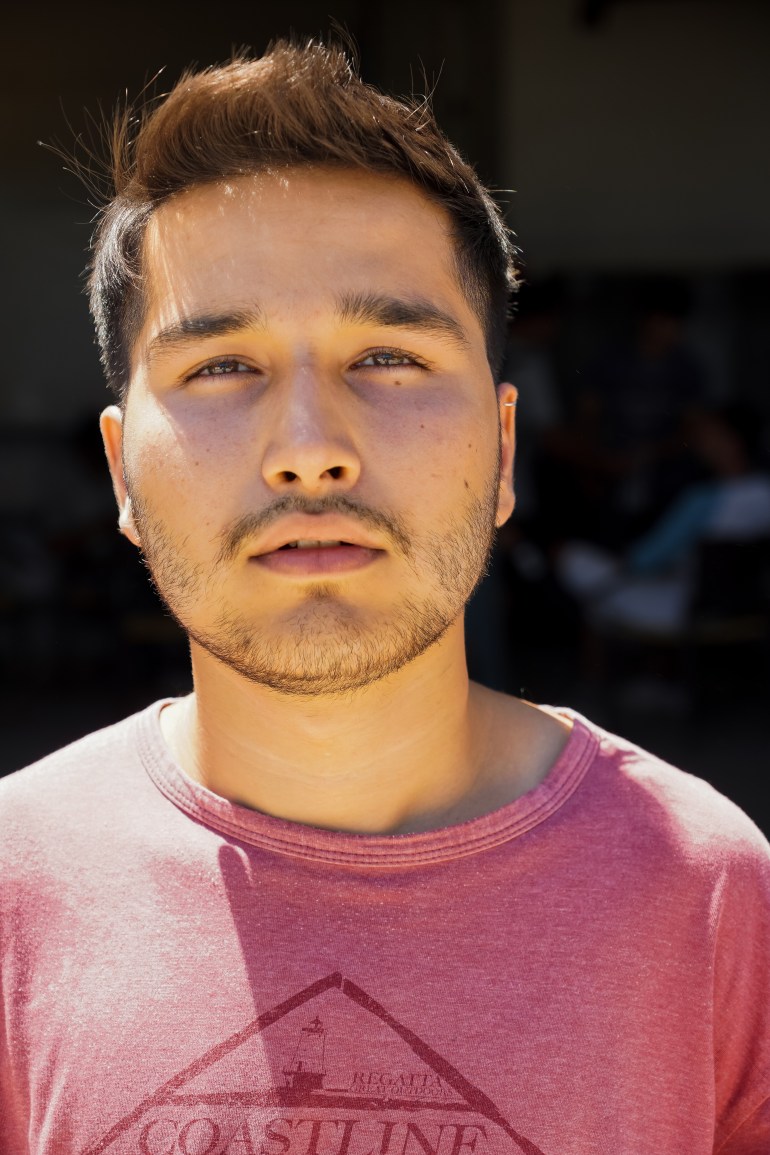
2020 has by far been the worst year of my life.
I have lived this entire year in Moria, then 10 days left homeless, with nothing, in the streets. Now I’m in this ‘new’ camp. I don’t expect any help from anyone because in more than one year help simply hasn’t come.
I don’t care what politicians are doing. They do what they want and everyone else just watches silently.
Why do people close their eyes?
I hope next time you close your eyes, you hear the voice of the little girl screaming because she is being raped, the six year old burning in the fire, the families freezing cold in the camp this winter, those about to sink in the sea, or those getting a slap in the face simply for asking for food.
‘I hope we eradicate diseases more dangerous than COVID’
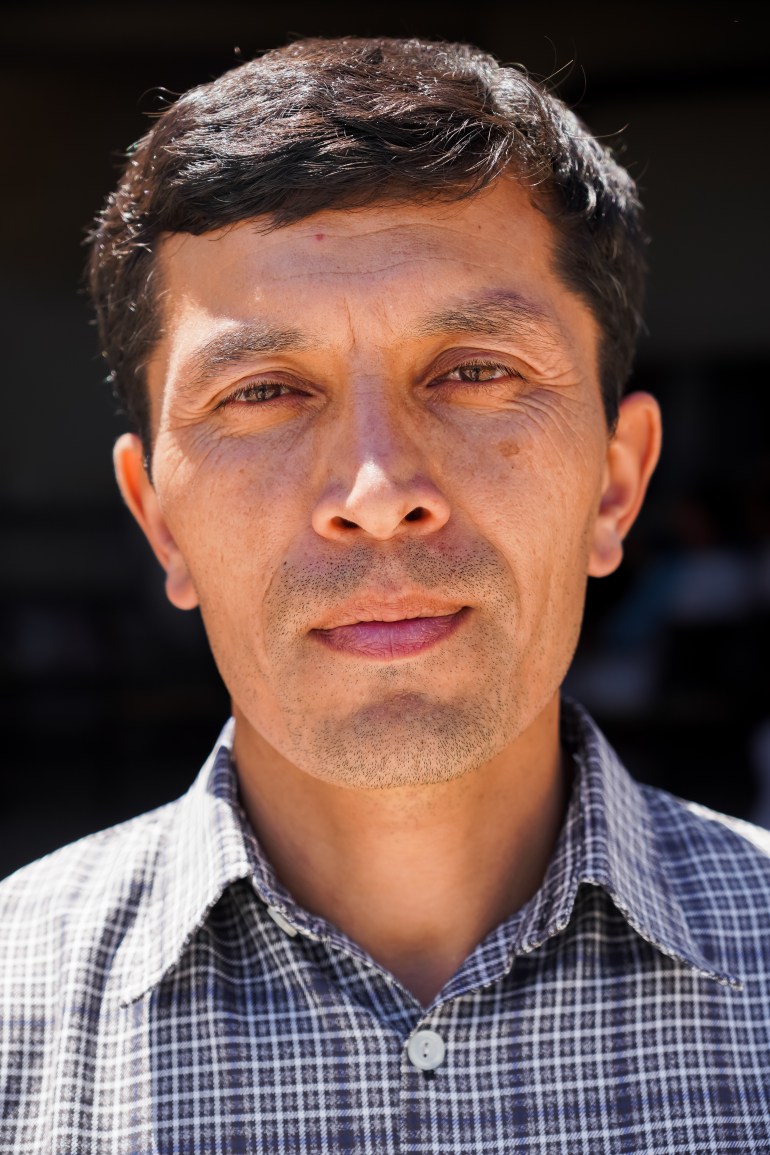
Mohammed Ali Alami, 39, refugee:
2020 was a year of special experiences for me. We left with wounded bodies, wounded souls. But we saw devoted people who were trying with love to support those forced to leave their countries. We needed them to heal our wounds and make us forget the hard days.
2020 saw this enormous event that saw the entire world fight a common problem that spared no one – developed and developing countries, rich and poor people, all equal in this, hundreds of thousands, even millions killed by COVID-19.
I hope that 2021 will be the year when the whole world will unite to eradicate diseases even more dangerous than COVID-19 – the diseases of war, inequality, colonialism, discrimination, racism and enslavement.
‘We must ensure refugees are included in COVID vaccination plans’
Clementine Nkweta-Salami, UNHCR’s regional director for the East and Horn of Africa and Great Lakes:
At its start, 2020 was looking a bit brighter for refugees. UNHCR had just held its Global Refugee Forum, in Geneva, where governments, private companies and NGOs made hundreds of pledges to support finding long-lasting solutions for people forcibly displaced in Eastern Africa and around the world.
Just as we were working on turning pledges into action, the COVID-19 pandemic struck.
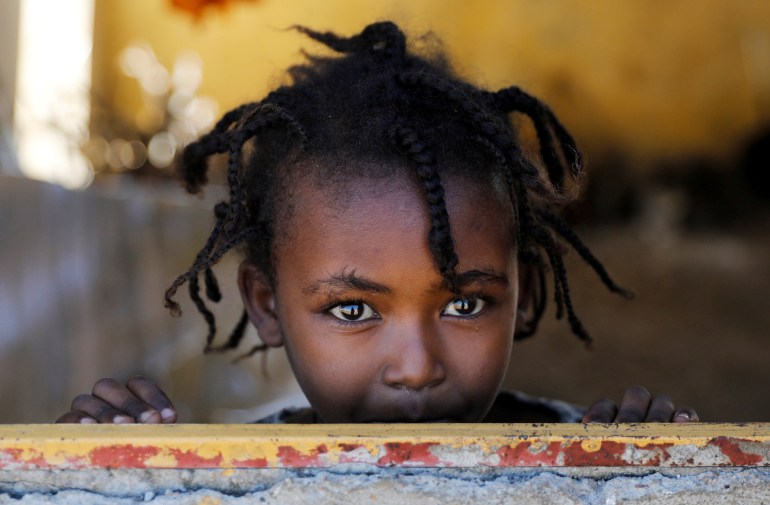
As governments implemented lockdowns, restrictions on movement and border closures, refugees saw the lives they had been trying to rebuild crumble. Most refugees work in the informal economy and their jobs were the first to disappear. We have seen an increase in domestic violence, early marriages, teen pregnancies and suicide attempts. As schools begin to slowly reopen, we fear that many girls may never return.
We have seen bursts of hope. Governments have included refugees in national plans to respond to the pandemic. We found new ways of reaching survivors of sexual and gender-based violence and others in need by enlisting refugee community members. A man in Dadaab camp invented a hand-washing device. Refugee teachers held classes over the radio. Refugee doctors and nurses lent their skills around the world.
The year ahead will be challenging. A new conflict in Ethiopia’s Tigray region has caused more than 50,000 to flee for their lives into Sudan. We must ensure refugees are included in COVID vaccination plans. And we face an enormous task to get refugee girls back to school.
I hope we can get back to fulfilling the pledges made last year. The pandemic has shown everyone that working together is the only way to find lasting solutions.
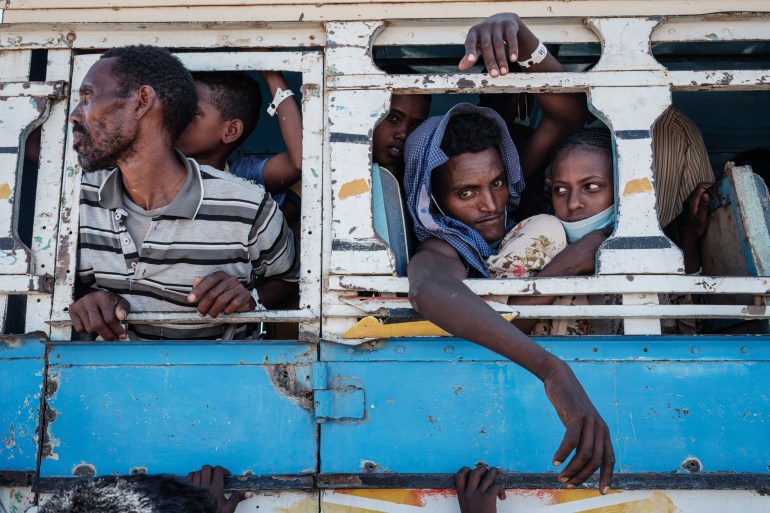
‘When will we learn that treating refugees like criminals does not work?’
Clare Moseley, founder of Care4Calais:
In October, a family of five refugees died when their boat sank as they tried to cross from France to the UK. Rasoul Iran-Nejad, Shiva Mohammad Panahi, their children Anita, Armin and baby Artin, who was just 15 months old, were fleeing persecution in Iran.
The grim truth is that things have become worse for refugees in France and the UK this year.
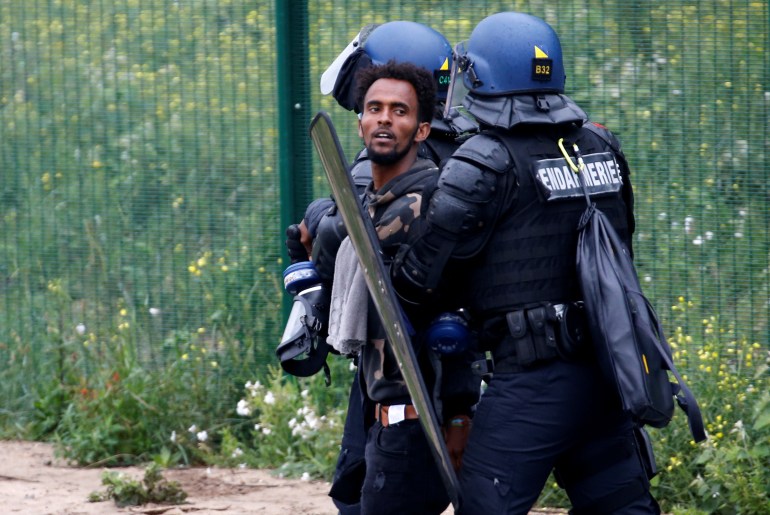
French authorities have become more hostile, more brutal in their tactics. Governments use military-style tactics in the Channel to hunt down refugees like criminals. Those who make it to the UK are housed in hotels and military barracks that fail to provide for their most basic needs, and live under constant threat of sudden deportation.
When will we learn that treating refugees like criminals does not work? Denying people legal routes to asylum drives them into the arms of smugglers.
My hope for 2021 is that policymakers realise this, and change tack. It’s a slim hope, but we will never give up.
‘We are now more than ever dependent on each other’
Ingebjørg Kårstad, photographer:
My first and only work travel this year went to the northeast border areas of Sudan three weeks ago. Thousands of Ethiopian refugees from violence-stricken Tigray have sought safety in a country that is dealing with drought, disease and an ever-worsening economic crisis. There, I met 65-year-old Melashu who told me about the horrific memories of what she had witnessed – dead bodies lying in the streets with no one to bury them. Melashu worried she would not have enough food to make it through the winter.
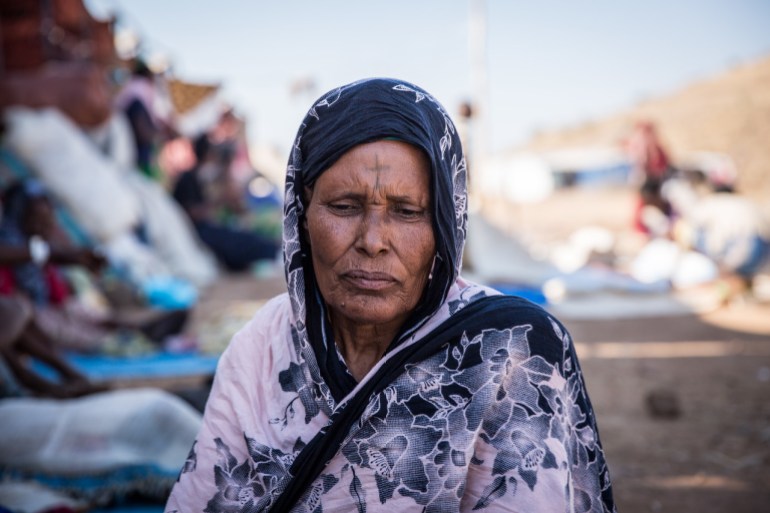
As I embarked the plane taking me back home to Norway, with newly sanitised hands and my face mask on, I was reminded once again that despite coping with historical restrictions and my many feelings of hopelessness over last months, there is still so much more than can and must be done for those who are the most affected.
They, too, must be included in economic recovery plans and vaccination rollouts. If the pandemic has taught us anything at all, it should be that we are now more than ever dependent on each other to make it through.
‘The COVID excuse has been used to justify anti-migrant repression’
Alarm Phone (an activist network providing a hotline for refugees in distress at sea):
For people precariously on the move, 2020 has been devastating. In the Mediterranean context, the COVID-19 pandemic has not only worsened living conditions in places of transit but has also made sea crossings more difficult.
In the name of battling a pandemic, European authorities have increased deterrence measures which have made Mediterranean journeys more dangerous. Malta and Italy closed their ports to those in need and decreased their search and rescue operations, effectively normalising practices of non-assistance, interception and push-back.
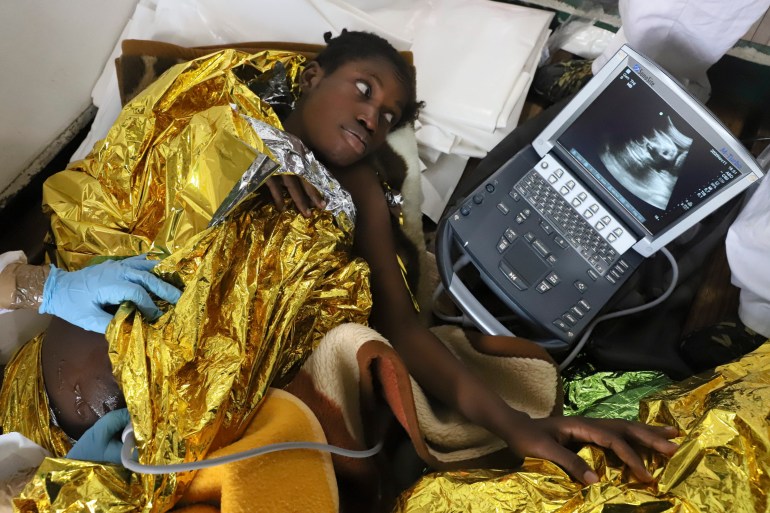
We have directly witnessed the deadly consequences.
In the Aegean context, the Greek coastguards and the EU border agency, Frontex, have systematised violent push-back practices. Although they are documented nearly every day, there is no outcry in the European public.
On the Aegean islands, the suffering of thousands of migrants continues during a pandemic and the winter period.
In the case of Morocco, thousands of migrants have been violently prevented from leaving by boat and from reaching Spain, often through arbitrary raids and arrests. At the same time, more people have sought to escape to the Canary Islands – an incredibly risky journey in the
Atlantic.
We at the Alarm Phone have witnessed how in Europe and elsewhere, the ‘COVID excuse’ has been used to justify dramatically increasing forms of anti-migrant repression.
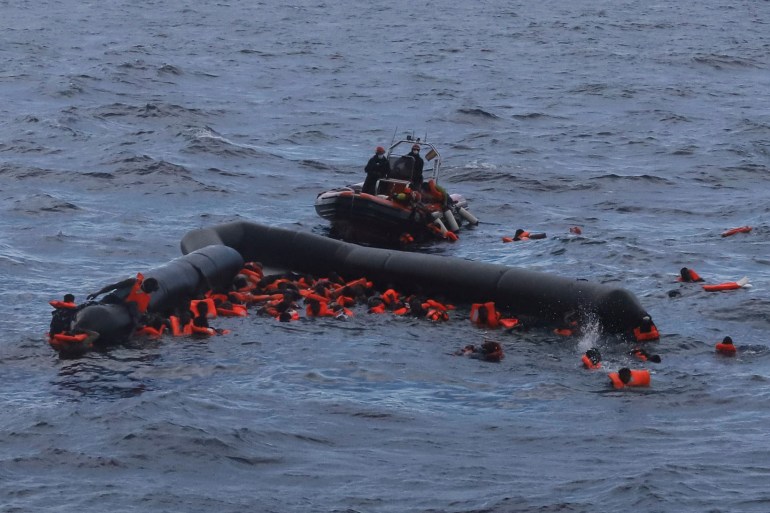
‘COVID was used as a pretext to subvert the right to seek asylum’
Bill Frelick, director of Human Rights Watch’s refugee and migrant rights division:
The pandemic ground virtually all international migration to a halt, but also led to some immigration detention releases.
Restricting movement to prevent disease transmission was a public health imperative, but COVID was also used as a pretext to accelerate and consolidate longstanding efforts to subvert the right to seek asylum.
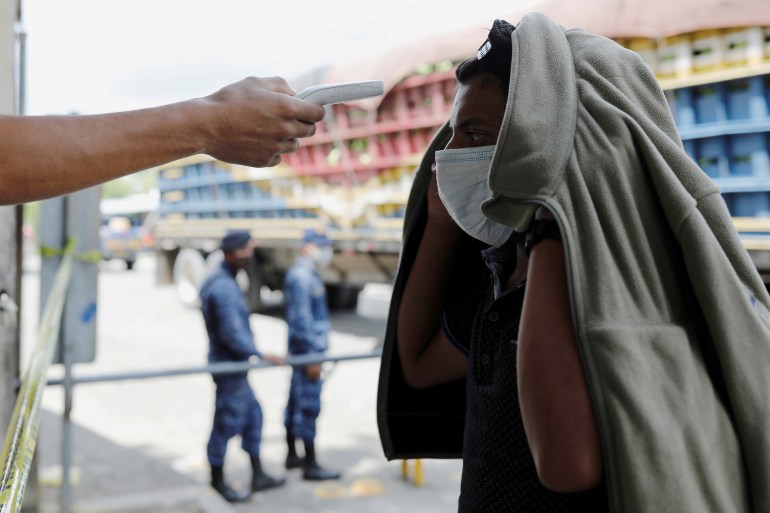
In the US, political pressures pushed the Centers for Disease Control to authorise summary removal of anyone crossing the border irregularly, with no exceptions for asylum seekers or unaccompanied children. Europe, at times citing public health as a rationale, not only boxed in asylum seekers on the Greek islands, but Cyprus, Croatia and Malta, among others, engaged in illegal border pushbacks.
And the European Union funded and coordinated with Libyan authorities to intercept migrants and return them to overcrowded and unsanitary detention.
As public health restrictions ease in 2021, the reconstruction of a global refugee protection regime will require dismantling barriers that block access to asylum.
‘For the first time I could almost grasp how it is: no certainty at all, no clear future, not knowing what was to come’
Eduardo Soteras Jalil, photographer:
During my career I took many photos of refugees and migrants. I always tried to get closer, either by making their same trip, staying overnight in their tents, or just sharing a meal. Naturally there has always been a natural distance imposed by my privilege and my camera.
In this 2020, so particular for the generality of us not-refugees, I did not document any refugee crisis. Instead I had to leave behind my life in Addis and was sent back to my home place, where I had to stay locked in a house for several months. Nothing terrible, a nice house next to a lake, food, a sort of a forced vacation with my family.
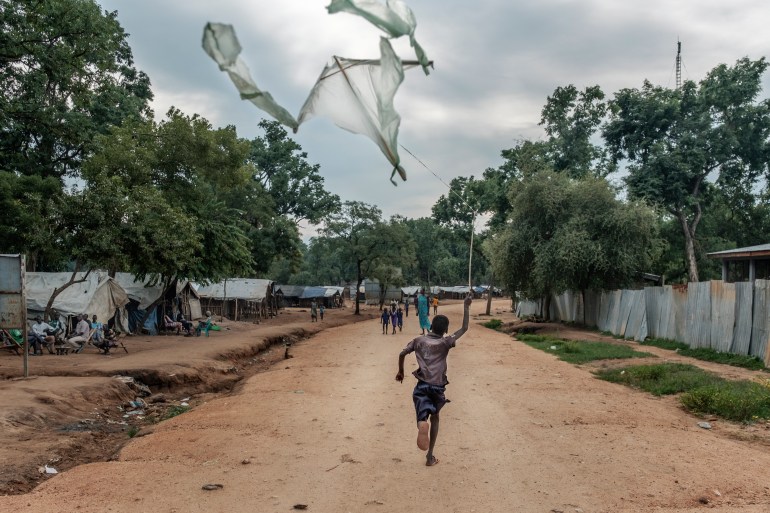
Among the comfort and privilege, for the first time I could almost grasp how it is: no certainty at all, no clear future, not knowing what was to come. For the first time I could not control the future of my family, and trying to keep us together and functioning required a new and immense challenge. For the first time it was real, and it was happening to me.
Perhaps that was the discovery, the hope: that having empathy towards the situation of millions of fellow humans looking for refuge is not enough, that the real aim is to have a bit of their resilience and love, to be finally a bit better just like them.
‘COVID-19 highlights that we can’t exclude people on the basis of their legal status’
Reem Mussa, Doctors Without Borders’ (MSF’s) humanitarian adviser on displacement:
COVID has highlighted the dangerous conditions in which migrants and refugees are forced to live, as well as their exclusion from the health system. Moreover, coercive measures to attempt to control COVID have disproportionately impacted migrants and refugees: from the denial of disembarkation of boats carrying asylum seekers and the establishment of quarantine boats in the Mediterranean Sea to the endless lockdown enforced on asylum seekers trapped on Greek Island hotspots.
COVID was not the only crisis faced by refugees in 2020. The fire in Lesbos, the Moria hotspot, was set ablaze after years of neglectful conditions.
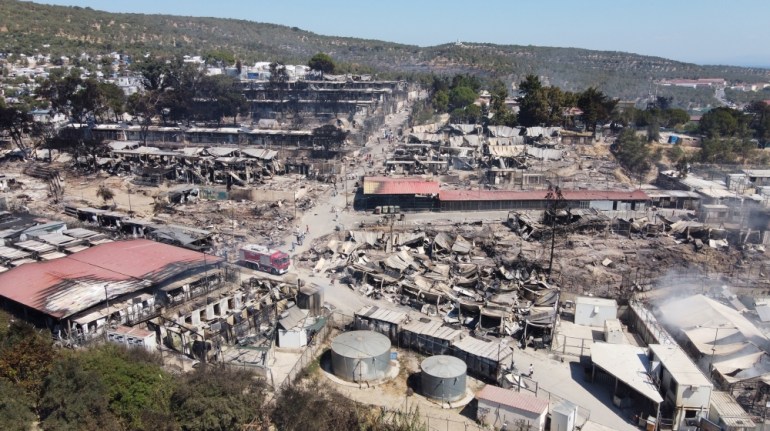
Violent pushbacks by EU states’ border police at the Greek and Croatian borders, as well as reports of Frontex involvement, highlight that the EU is not only turning a blind eye to violence but is reinforcing it through its funds and political support.
It is time the EU addressed the grave protection and humanitarian concerns generated by its policies.
COVID-19 highlights that we can’t exclude people on the basis of their legal status, we must ensure access to health, safe reception and protection to all.
‘People seeking asylum were shut out in violation of international law’
Jennifer Foster, Amnesty International’s refugee and migrant rights researcher:
The pandemic forced state and humanitarian actors to consider different ways of operating, which led to an increase in refugee-led initiatives in aid delivery in East Africa – empowering people with lived experience to determine the best ways to help their communities.
We welcomed the announcement by Bangladesh in January that Rohingya children would finally be allowed to enjoy their right to education, but in recent days have condemned the forced relocation of more than 1,600 Rohingya people to a remote silt island.
Yet while human beings show resilience and strength during times of crisis, the hope for a better life is crushed by states which continue to turn their backs on people seeking safety.
When states closed borders trying to limit the spread of COVID-19, people seeking asylum were shut out, in violation of international law. The trend of illegal pushbacks has become entrenched globally, and people fleeing out of fear for their lives and the future of their children are being dragged back to sea or pushed back across borders by those meant to protect them.
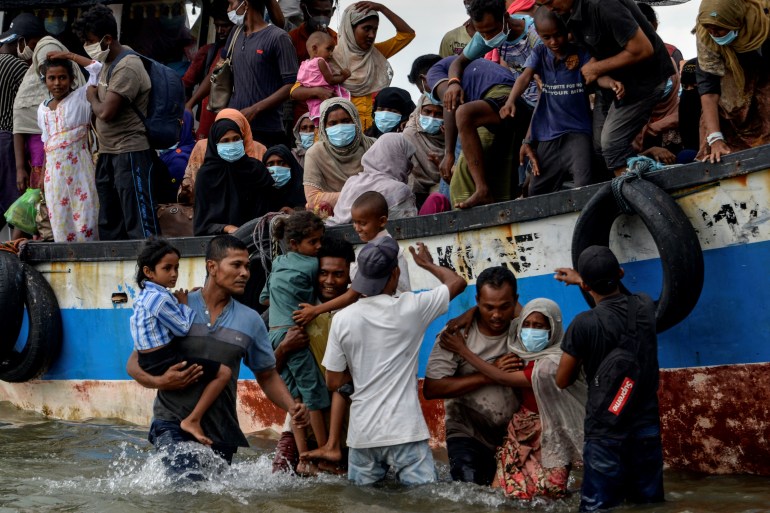
Interviews were edited for clarity and brevity.